by Michael Liss
Eye of newt and toe of frog, Wool of bat and tongue of dog…
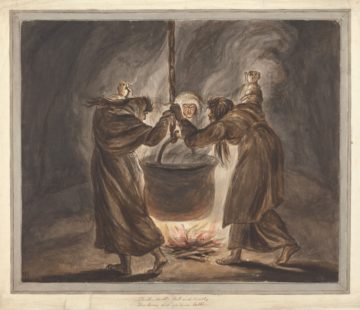
It could have worked. It almost did. It may in the future.
A lovely little coup attempt by Former President Trump and his posse. A little violence. A sprinkling of eager state and local “public servants” who planned to please the then-President by spinning gossamer tales of phantom voters and secret shredders. Brigades of lawyers, a few absolute kooks, but others both well-placed in government or in influential positions, and deadly serious. This last group included 17 State Attorneys General who looked in their mirrors each morning and saw “Future Really Important Republican Persons” staring back at them.
Let’s not back away from the obvious. January 6th wasn’t a single, isolated moment of acting-out by an angst-driven set of peaceful patriots driven mad by the loss of their idol. It was the punctuation mark on an intense stretch of unrelenting pressure by Trump and his allies to crush the democratic process. That the Ship of State eventually stayed afloat, that people, including many Republicans, pushed back enough to block Trump’s power grab, is to its and their credit. But, to quote Star Trek’s Scottie when the Enterprise was under assault, “I dannae if she can take any more, Captain!”
The more we learn, the worse it gets. Let’s start with 45. I don’t know whether Donald Trump actually believes much of what he says, but, late in life, he’s found a role he can play where accountability doesn’t exist. He knows his followers love a good show. He knows the media, even the so-called liberal media, would rather cover someone colorful and newsworthy than old, boring Joe Biden. And, through all of it, it doesn’t matter what the 1/6 Committee, or investigative reporters, or state prosecutors might find. He knows he’s untouchable. Others may pay a price, but not Trump. Read more »

 Two profound horrors have plagued the world in recent times: the Covid-19 pandemic and the Trump presidency. And after years of dread, their recent decline has brought me a brief respite of peace.
Two profound horrors have plagued the world in recent times: the Covid-19 pandemic and the Trump presidency. And after years of dread, their recent decline has brought me a brief respite of peace.
 White Americans get a lot of things wrong about race. And not just the relatively small number of blatant white supremacists, or the many millions (
White Americans get a lot of things wrong about race. And not just the relatively small number of blatant white supremacists, or the many millions ( My Jewish maternal grandparents came to America just ahead of WWII. Nearly all of my grandmother’s extended family were wiped out in the Holocaust. Much of my grandfather’s extended family had previously emigrated to Palestine.
My Jewish maternal grandparents came to America just ahead of WWII. Nearly all of my grandmother’s extended family were wiped out in the Holocaust. Much of my grandfather’s extended family had previously emigrated to Palestine. Not long ago there was an article circulating on Facebook about ‘Hating the English’, originally published in a large circulation newspaper. The Irish author says something to the effect that once she thought it was just a few bad ones etc., but now she hates the lot of them. It’s been stimulated, I think, by the repulsive English nationalism that has been raising its head since Brexit, plus the usual ignorance about Ireland, Irish history and Irish interests on the part of your typical ‘Brit’. It’s not a very good piece of writing, and it has a rather slight idea in it. I’d ignore it but for the ‘likes’ and positive comments it’s received, particularly from ‘leftists’. It’s an example of what we could call ‘bloc thinking’ – the emotionally satisfying but futile consignment of entire masses of people into categories of nice and nasty.
Not long ago there was an article circulating on Facebook about ‘Hating the English’, originally published in a large circulation newspaper. The Irish author says something to the effect that once she thought it was just a few bad ones etc., but now she hates the lot of them. It’s been stimulated, I think, by the repulsive English nationalism that has been raising its head since Brexit, plus the usual ignorance about Ireland, Irish history and Irish interests on the part of your typical ‘Brit’. It’s not a very good piece of writing, and it has a rather slight idea in it. I’d ignore it but for the ‘likes’ and positive comments it’s received, particularly from ‘leftists’. It’s an example of what we could call ‘bloc thinking’ – the emotionally satisfying but futile consignment of entire masses of people into categories of nice and nasty. According to Donald Trump, in
According to Donald Trump, in  People are basically good.
People are basically good.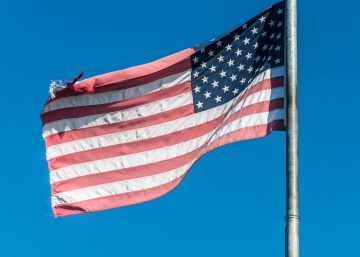 think about that. Though others may have one, I lack an analytic framework. The best I can do is to offer some things I’ve been thinking about.
think about that. Though others may have one, I lack an analytic framework. The best I can do is to offer some things I’ve been thinking about. Is there anything more clichéd than some spoiled, petulant celebrity publicly threatening to move to Canada if the candidate they most despise wins an election? These tantrums have at least four problems:
Is there anything more clichéd than some spoiled, petulant celebrity publicly threatening to move to Canada if the candidate they most despise wins an election? These tantrums have at least four problems: There is a minor American myth about shame and regret. It goes like this.
There is a minor American myth about shame and regret. It goes like this.
 Violence : War :: Lies : Mythology
Violence : War :: Lies : Mythology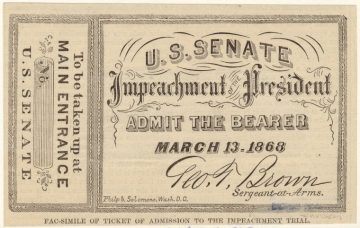 I have an awful confession to make. I haven’t made up my mind about whether President Trump should be convicted and removed from office.
I have an awful confession to make. I haven’t made up my mind about whether President Trump should be convicted and removed from office.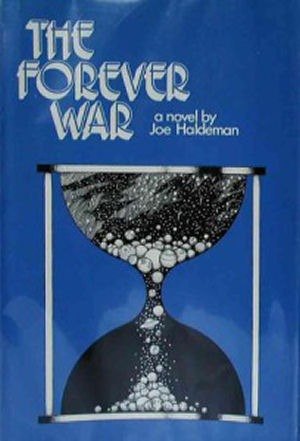 In 1974, noted science fiction author Joe Haldeman published a novel called The Forever War, which won several awards and spawned sequels, a comic version, and even a board game. The Forever War tells the story of William Mandella, a young physics student drafted into a war that humans are waging against an alien race called the Taurans. The Taurans are thousands of light years away, and traveling there and back at light speed leads Mandella and other soldiers to experience time differently. During two years of battle, decades pass by on Earth. Consequently, the world Mandella returns to each time is increasingly different and foreign to him. He eventually finds his home planet’s culture unrecognizable; even English has changed to the point that he can no longer understand it.
In 1974, noted science fiction author Joe Haldeman published a novel called The Forever War, which won several awards and spawned sequels, a comic version, and even a board game. The Forever War tells the story of William Mandella, a young physics student drafted into a war that humans are waging against an alien race called the Taurans. The Taurans are thousands of light years away, and traveling there and back at light speed leads Mandella and other soldiers to experience time differently. During two years of battle, decades pass by on Earth. Consequently, the world Mandella returns to each time is increasingly different and foreign to him. He eventually finds his home planet’s culture unrecognizable; even English has changed to the point that he can no longer understand it. April 2018: ‘Tis the Season of Giddiness in Democratlandia. Republicans are saddled with a widely despised President and riven by internal dissension. The Republican leadership in Congress is lurching from fiasco to fiasco – interrupted briefly by one great “success” on tax cuts. The zombie candidates of the Tea Party are still stalking establishment Republicans across the land. And, somewhere in his formidable fastness, the Great Dragon Mueller is winding up for the fiery breath that will consume the world of Trumpism like a paper lantern. And a Blue Wave – nay, a Tsunami – is headed towards the Republicans in Congress, looking to engulf them in November.
April 2018: ‘Tis the Season of Giddiness in Democratlandia. Republicans are saddled with a widely despised President and riven by internal dissension. The Republican leadership in Congress is lurching from fiasco to fiasco – interrupted briefly by one great “success” on tax cuts. The zombie candidates of the Tea Party are still stalking establishment Republicans across the land. And, somewhere in his formidable fastness, the Great Dragon Mueller is winding up for the fiery breath that will consume the world of Trumpism like a paper lantern. And a Blue Wave – nay, a Tsunami – is headed towards the Republicans in Congress, looking to engulf them in November.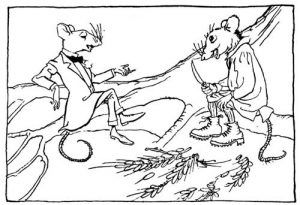 In 1790, shortly after the 13 states ratified the U.S. Constitution, the new federal government conducted its first population census. Its tabulations revealed an astonishingly rural nation. No less than 95% of all Americans lived in rural areas, either on a fairly isolated homestead (typically a farm) or in a very small town. How small? Fewer than 2,500 people. Meanwhile, just 1/20 of Americans lived in a town with more than 2,500 people. All told there were only 26 such towns, only half of which had so many as 5,000 people
In 1790, shortly after the 13 states ratified the U.S. Constitution, the new federal government conducted its first population census. Its tabulations revealed an astonishingly rural nation. No less than 95% of all Americans lived in rural areas, either on a fairly isolated homestead (typically a farm) or in a very small town. How small? Fewer than 2,500 people. Meanwhile, just 1/20 of Americans lived in a town with more than 2,500 people. All told there were only 26 such towns, only half of which had so many as 5,000 people “It’s a long, long way from the Trump administration to an actual fascist dictatorship,” I said, “but it’s a straight line.”
“It’s a long, long way from the Trump administration to an actual fascist dictatorship,” I said, “but it’s a straight line.”